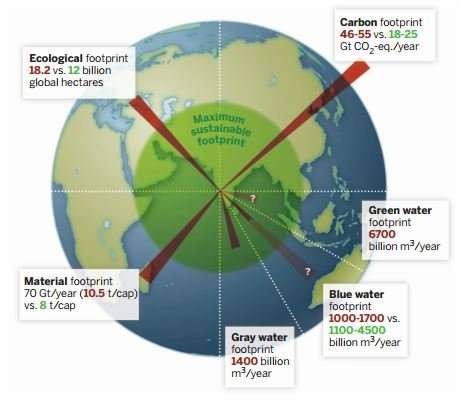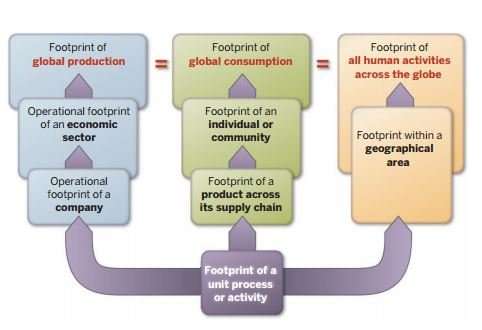Humanity's overall environmental footprint is not sustainable

Substantial, fundamental changes in the world economy are required to reduce humanity's overall environmental footprint to a sustainable level. This is the conclusion of Arjen Hoekstra, professor of Water Management at the University of Twente. He publishes his findings in the article "Humanity's unsustainable environmental footprint" in Science magazine.
Hoekstra, mainly known for the water footprint, has published the research together with his German counterpart Thomas Wiedmann, employed by the University of New South Wales in Australia. In Science, the authors describe how intertwined the global economy, politics, consumption and trade are in their effect on global land, water and raw material consumption and on the climate.
Too little responsibility
"Our article mainly focuses on understanding the interdependence of the different types of footprints and the role that businesses, consumers and governments play in creating our overall footprint," says Hoekstra. "We know that we are not sufficiently sustainable in our actions. But the interdependence has not previously been shown in this way. The various players have divergent interests and take too little responsibility. Consumers do not feel responsible for what producers do and politicians focus too much on growth, exports and cheap imports. For example, who feels responsible for the distress caused when we deplete the resources in China because of cheap imports? If you buy a stolen bicycle, you are liable to punishment and individually responsible. But isn't the consumption of products that are not produced sustainably also irresponsible behaviour? Rethinking the global supply chain, that's what it's all about."

Hoekstra and Wiedmann map out mankind's total environmental footprint in a scientific, unique manner, but also realize that a solution is not immediately obvious. "This of course requires fundamental changes in the global economy and international cooperation. But understanding the role of the various parties and the enormous complexity underlying our overall footprint is a first step. Everyone should assume and be given greater supply-chain responsibility; only then can we sustain our society", concludes Hoekstra.
More information: The complete report is available online: www.ayhoekstra.nl/pubs/Hoekstr … nmentalFootprint.pdf
Journal information: Science
Provided by University of Twente
















